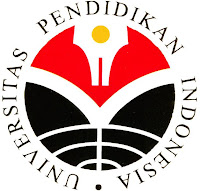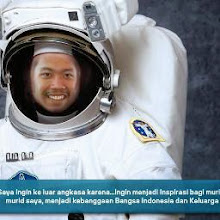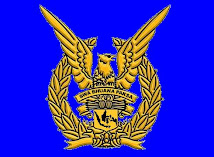Indonesian Space Sciences & Technology School
 Space Systems Laboratory
Space Systems Laboratory
The Space Systems Laboratory engages in cutting-edge research projects with the goal of directly contributing to the current and future exploration and development of space. SSL's mission is to explore innovative concepts for the integration of future space systems and to train a generation of researchers and engineers conversant in this field.
Specific tasks include developing the technology and systems analysis associated with small spacecraft, precision optical systems, and International Space Station technology research and development. The laboratory encompasses expertise in structural dynamics, control, thermal, space power, propulsion, microelectromechanical systems, software development and systems.
Major activities in this laboratory are the development of small spacecraft thruster systems (see the Space Propulsion Laboratory) and researching issues associated with the distribution of function among satellites. In addition, technology is being developed for spaceflight validation in support of a new class of space-based telescopes that exploit the physics of interferometry to achieve dramatic breakthroughs in angular resolution. (See affiliated faculty)
Introduction
Welcome to the Space Systems Laboratory (SSL) in the Department of Aeronautics and Astronautics at the Massachusetts Institute of Technology. Founded in 1995, the SSL engages in cutting edge research projects with the goal of directly contributing to the present and future exploration and development of space. Specific missions include developing the technology and systems analysis associated with small spacecraft, precision optical systems, and International Space Station technology research and development.
The laboratory encompasses expertise in structural dynamics, control, thermal, space power, propulsion, MEMS, software development and systems. A major activity in this laboratory is the development of small spacecraft thruster systems as well as looking at issues associated with the distribution of function among satellites.
In addition, technology is being developed for spaceflight validation in support of a new class of space-based telescopes that exploit the physics of interferometry to achieve dramatic breakthroughs in angular resolution. The objective of the Laboratory is to explore innovative concepts for the integration of future space systems and to train a generation of researchers and engineers conversant in this field.
SSL PartnersThe laboratory encompasses expertise in structural dynamics, control, thermal, space power, propulsion, MEMS, software development and systems. A major activity in this laboratory is the development of small spacecraft thruster systems as well as looking at issues associated with the distribution of function among satellites.
In addition, technology is being developed for spaceflight validation in support of a new class of space-based telescopes that exploit the physics of interferometry to achieve dramatic breakthroughs in angular resolution. The objective of the Laboratory is to explore innovative concepts for the integration of future space systems and to train a generation of researchers and engineers conversant in this field.
The SSL is a member of NASA's Small Satellite Technology Initiative (SSTI), New Millennium Program, and International Space Station Technology Testbed Program. The Laboratory also has ties with the M.I.T. Lincoln Laboratory, NASA Langley, JPL and the Air Force Phillips Laboratory as well as the Departments of Electrical and Mechanical Engineering at M.I.T. and aerospace companies such as Draper, TRW, Lockheed-Martin, MDA and Hughes. Links to some of our partners:
NASA home page NASA Jet Propulsion Laboratory
NASA Ames Reseach Center
NASA Langley Research Center
MIT Electrical Engineering and Computer Science
MIT Mechanical Engineering
Lockheed-Martin
Payload Systems Inc
Added & Edited
By: Arip Nurahman
Department of Physics Education, Faculty of Sciences and Mathematics
By: Arip Nurahman
Department of Physics Education, Faculty of Sciences and Mathematics
Indonesia University of Education
and
Follower Open Course Ware at Massachusetts Institute of Technology
Cambridge, USA
Department of Physics
http://web.mit.edu/physics/
http://ocw.mit.edu/OcwWeb/Physics/index.htm
&
Aeronautics and Astronautics Engineering
http://web.mit.edu/aeroastro/www/
http://ocw.mit.edu/OcwWeb/Aeronautics-and-Astronautics/index.htm
Follower Open Course Ware at Massachusetts Institute of Technology
Cambridge, USA
Department of Physics
http://web.mit.edu/physics/
http://ocw.mit.edu/OcwWeb/Physics/index.htm
&
Aeronautics and Astronautics Engineering
http://web.mit.edu/aeroastro/www/
http://ocw.mit.edu/OcwWeb/Aeronautics-and-Astronautics/index.htm


For More Information
The following web pages are intended to give you a feel for the work done here in the SSL. If you have any specific questions concerning particular research projects, would like to learn more about the unique capabilities of the SSL, or would like to collaborate on a current or new project; please feel free to contact the Director of the MIT Space Systems Laboratory - Professor David Miller.
David W. Miller, Sc.D.
Space Systems Laboratory Director
Associate Professor of Aeronautics & Astronautics
Massachusetts Institute of Technology
77 Massachusetts Ave.
Room 37-327
Cambridge, MA 02139
(617) 253-3288 (tel)
(617) 258-5940 (fax)
millerd@mit.edu























